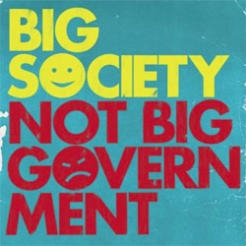After the Compact Commission was abolished, sector champions were to be established in every government department. Malcolm Hurlston tries to find them.
On the one hand the coalition government is setting great store by the Big Society. On the other it hates quangos.
So it was perhaps not surprising when – despite the clear need for an arbiter when unequal parties such as state and charities are in the ring – the decision was taken last year to abolish the Commission for the Compact.
Coalition ministers assured charities that the abolition of the Commission changed nothing: it did not mark a weakening of small civil society partners’ position vis à vis the state. As things had been they would remain.
Commitment
Charities could trust their departmental and local authority partners to play fair; the lion would lie down with the lamb and no doubt the leopard would take the same opportunity to change its spots. Anyway who was to know? And the coalition’s commitment to its Big Society was so strong, and so repeated, and at such a high level, that it was unlikely to risk being caught out in its promises.
Possibly the sacrifice of the Commission changed nothing; but it was welcome when the National Audit Office (NAO) published Central government’s implementation of the national Compact, in January of this year, looking at what was going on in practice.
I had taken my own straw poll last year of nine government departments in order to gauge the profile of their Big Society champions: the champions each department had been asked by the government to appoint, to make the case for the sector from the inside.
It was not scientific, but there was little evidence from switchboard enquiries and thereabouts that anybody knew much about the existence of these mythical champions. If we had a champion for civil society in each department, it was news to the department.
The NAO reported equal difficulty in outing the champions. Its report concluded that they were “not always visible”, and that “some champions in departments did not know who their counterparts in other departments were and neither did stakeholders in civil society”.
Given the importance of the role civil society organisations are destined to play in the Big Society, government departments clearly need help in adapting to their part in the drama. I have two suggestions.
The NAO report was both helpful and salutary. It would be in the interests of David Cameron for No. 10 to encourage the NAO to produce an annual report measuring progress in so key a venture.
Secondly, something needs to be done about the profile of departmental champions. At the moment they are certainly not champions, not even contenders. I would suggest that annually each champion should produce a written report – to an agreed format – which should be presented at public hearings in front of sector organisations.
Opportunity
The task of champions cannot be easy. Advocacy of the sector is likely to cut across the wishes and convenience of their more senior colleagues who have a job to do.
The champions and their departments are unlikely to jump at my suggestion, but the need to present annually would, with any luck, give our champions backbone, strengthen their positions within their departments and be an opportunity to make the Big Society work better. It would be public, and helpful, and not too frightening.
And by the way – for your further information – I emailed the senior official in each of nine departments in April with the simple request: ‘Could you give me the name and contact details of your Big Society champion?’ This was replicated at switchboard level.
I can reveal exclusively that only two departments came up with the same name from both sources. Take a bow, the Department of Health, and the Department for Business, Innovation and Skills.
Perhaps it is time for Francis Maude to twin the Big Society agenda with his transparency programme.
Malcolm Hurlston is chairman of Registry Trust and president of the Foundation for Credit Counselling










